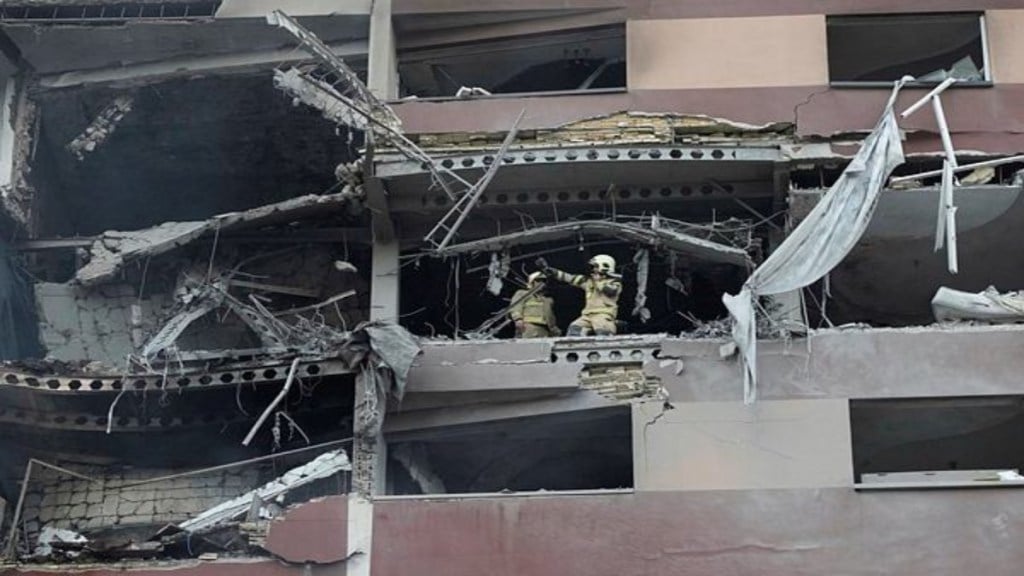Iran-Israel War: Israel attacked Iran on Friday, June 13, 2025, aiming to cripple Iran’s nuclear and missile capabilities and eliminating key regime leaders. The operation, codenamed Operation Rising Lion, was launched only after Israeli intelligence concluded that Iran was close to developing nuclear weapons, posing what Israeli Prime Minister Benjamin Netanyahu described as an “existential threat” to Israel’s survival.
Netanyahu declares mission to remove ‘existential threat’
Prime Minister Netanyahu declared, “Moments ago, Israel launched Operation Rising Lion, a targeted military operation to roll back the Iranian threat to Israel’s very survival. This operation will continue for as many days as it takes to remove this threat.”
The attack in the wake of rising tensions, failed diplomatic negotiations over Iran’s nuclear program, and threats by Iranian leaders against US bases and Israel.
Nuclear and military sites targeted in Operation Rising Lion
Israel’s leadership cited Iran’s rapid progress in uranium enrichment and advanced centrifuge installation as the primary reason for the attack. Netanyahu stated that Iran had produced enough highly enriched uranium for multiple nuclear bombs, and recent International Atomic Energy Agency (IAEA) reports found Iran non-compliant with its nuclear obligations for the first time in 20 years. The IAEA Board of Governors on Thursday, also passed a resolution declaring Iran in violation of its nuclear safeguards obligations, the first such finding in nearly two decades.
The Israeli Air Force struck several sites, including the Natanz enrichment complex and other nuclear facilities, missile factories, and residences of senior Iranian officials and scientists. Major casualties in the strike included the Iranian Armed Forces Chief of Staff, the commander of the Revolutionary Guards, and top nuclear scientists. Israeli officials described the operation as a “preemptive, precise, combined offensive” intended to roll back Iran’s nuclear program and deter further development of weapons. Six Iranian nuclear scientists were also killed in Israeli strikes, Iranian state media reported.
According to the Israeli government, allowing Iran to acquire nuclear weapons would destabilise the Middle East and threaten global security, given Iran’s support for proxy groups hostile to Israel.
Trump says Iran cannot possess nuclear weapons
In an interview with Fox News, Trump stated, “Iran cannot have a nuclear bomb and we are hoping to get back to the negotiating table. We will see.” Fox News correspondent Jennifer Griffin shared his remarks in a post on X, also quoting him as saying, “There are several people in leadership that will not be coming back.”
Meanwhile, US Middle East envoy Steve Witkoff is scheduled to hold talks with Iranian Foreign Minister Abbas Araghchi in Oman on Sunday to continue diplomatic discussions.
Oil prices surge
Oil prices surged overnight amid rising geopolitical tensions, as Donald Trump adopted a sharply more negative tone on nuclear negotiations with Iran and ordered the withdrawal of some American personnel from the Middle East.
The shift marks a dramatic turn after multiple rounds of mostly indirect US-Iran talks that had been characterised as “positive” and “respectful.”
Despite the heightened rhetoric, both the Trump administration and Iranian leadership have expressed interest in reaching a deal. For Trump, a successful agreement would represent a major diplomatic victory where the Biden administration fell short. For Iran, it could offer crucial sanctions relief to stabilise its struggling economy.

